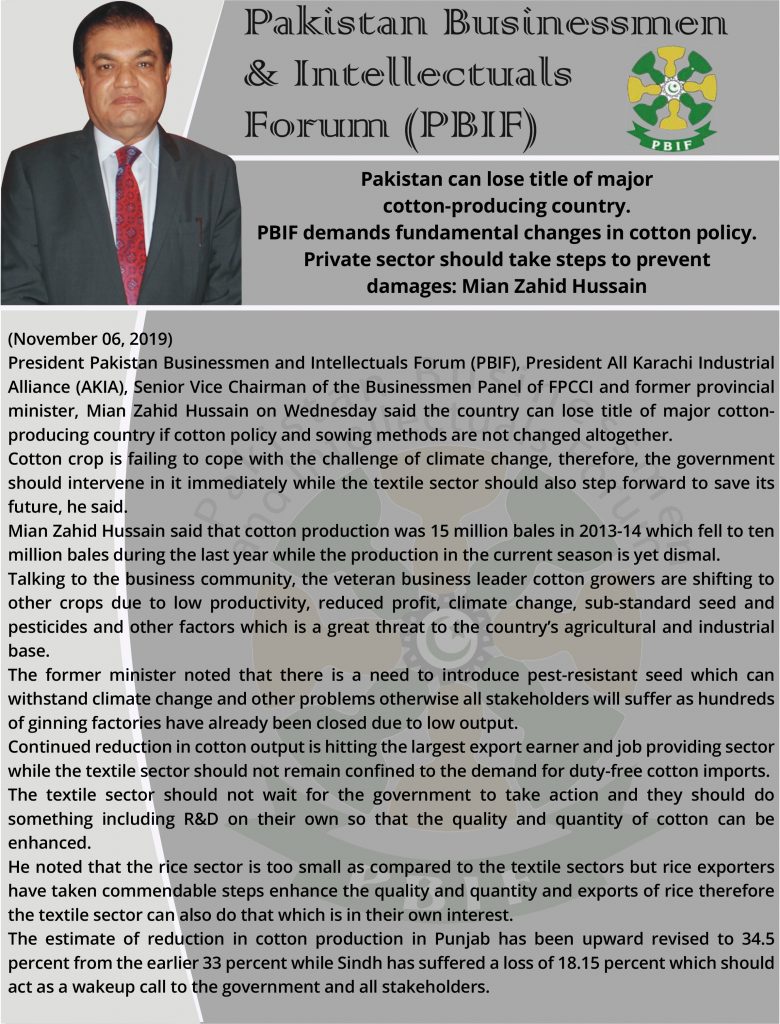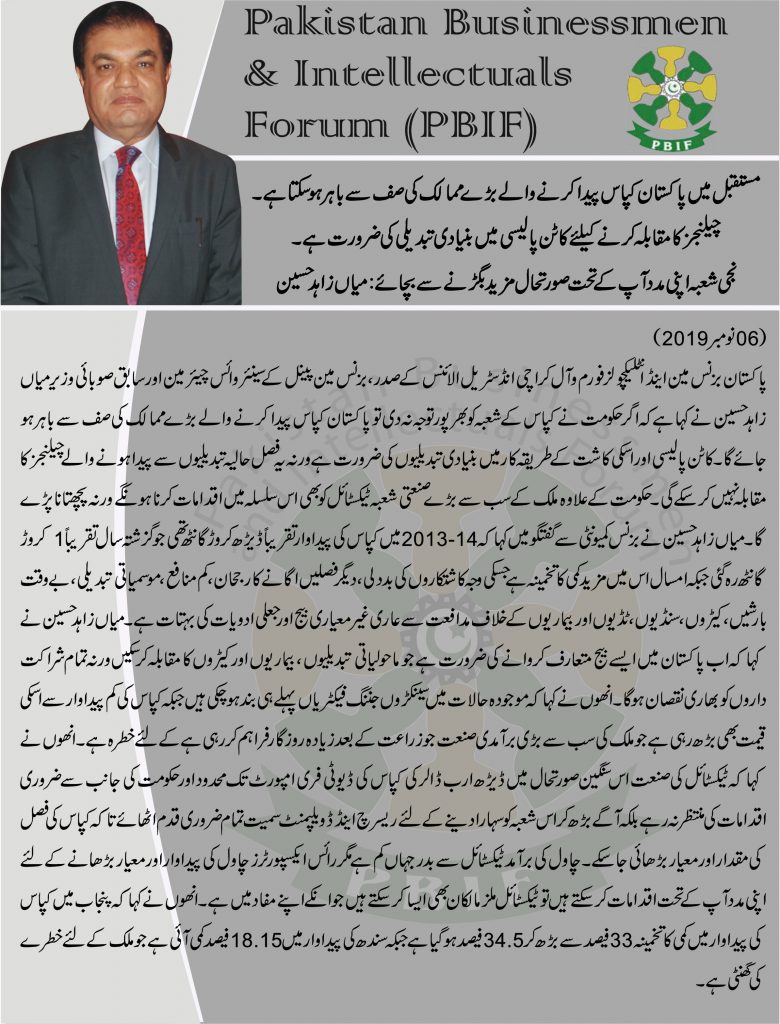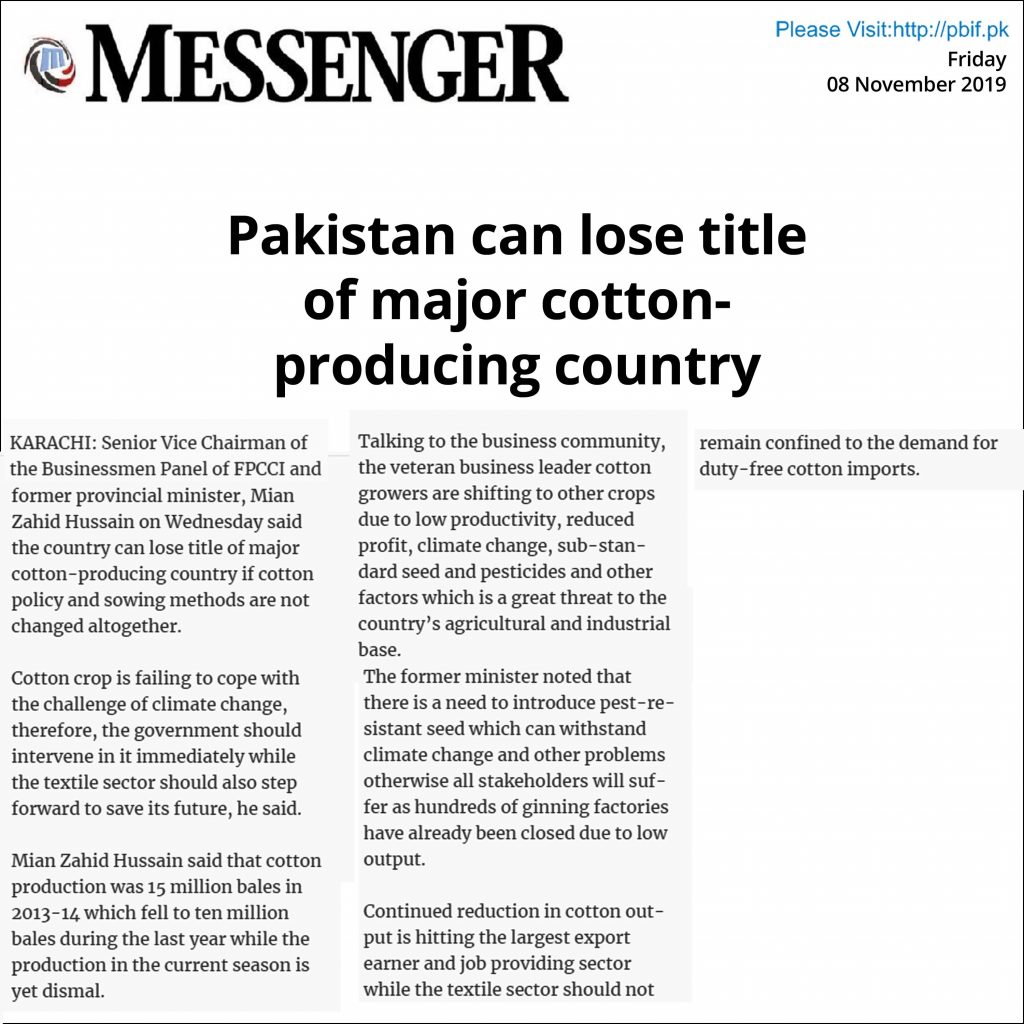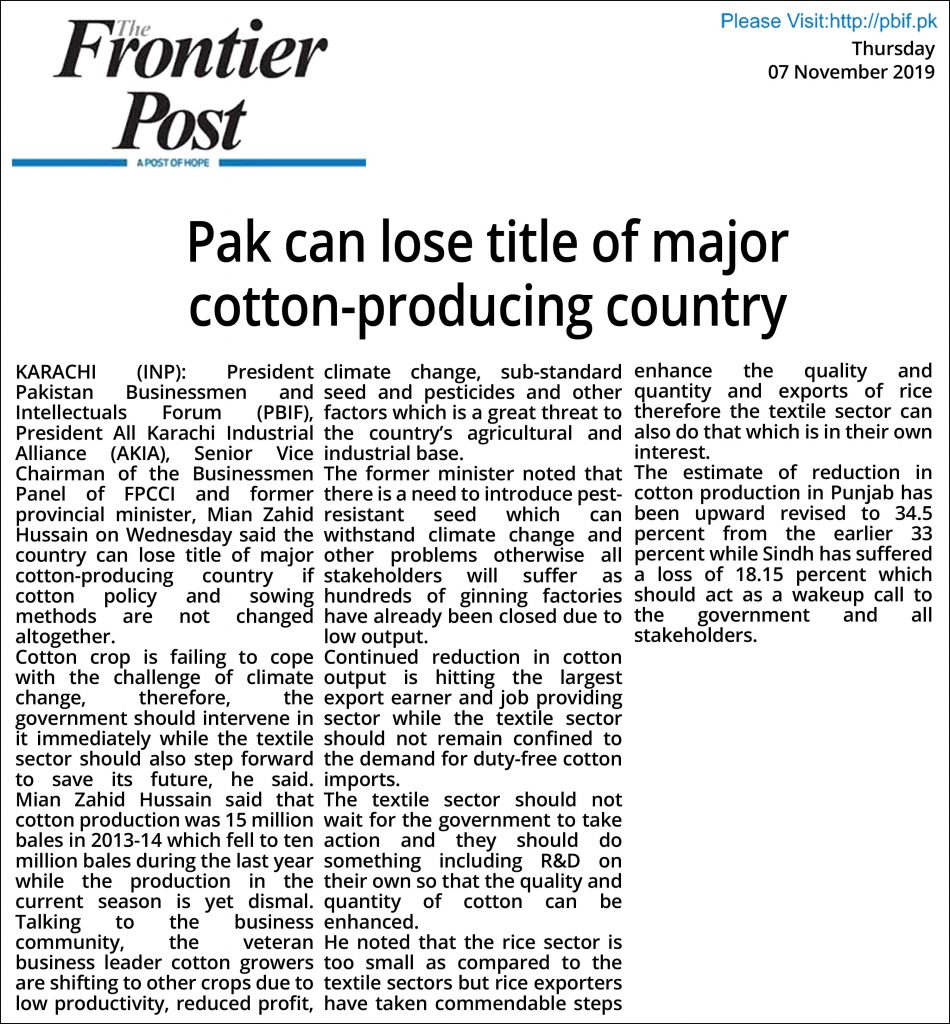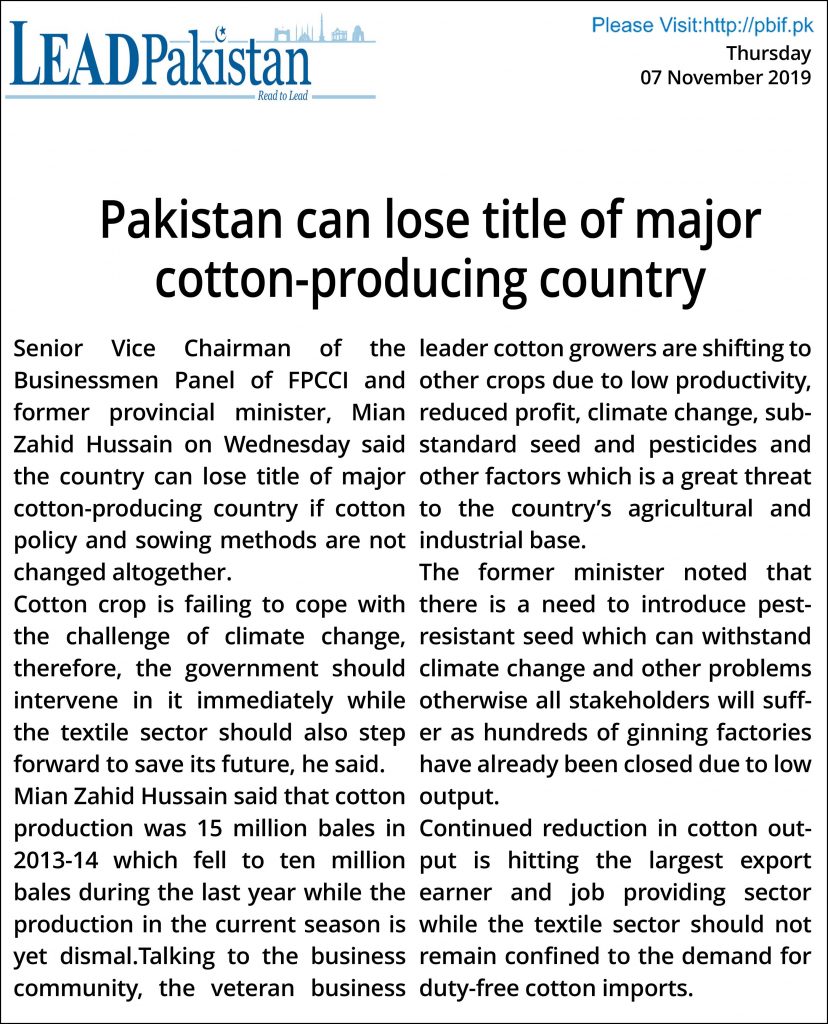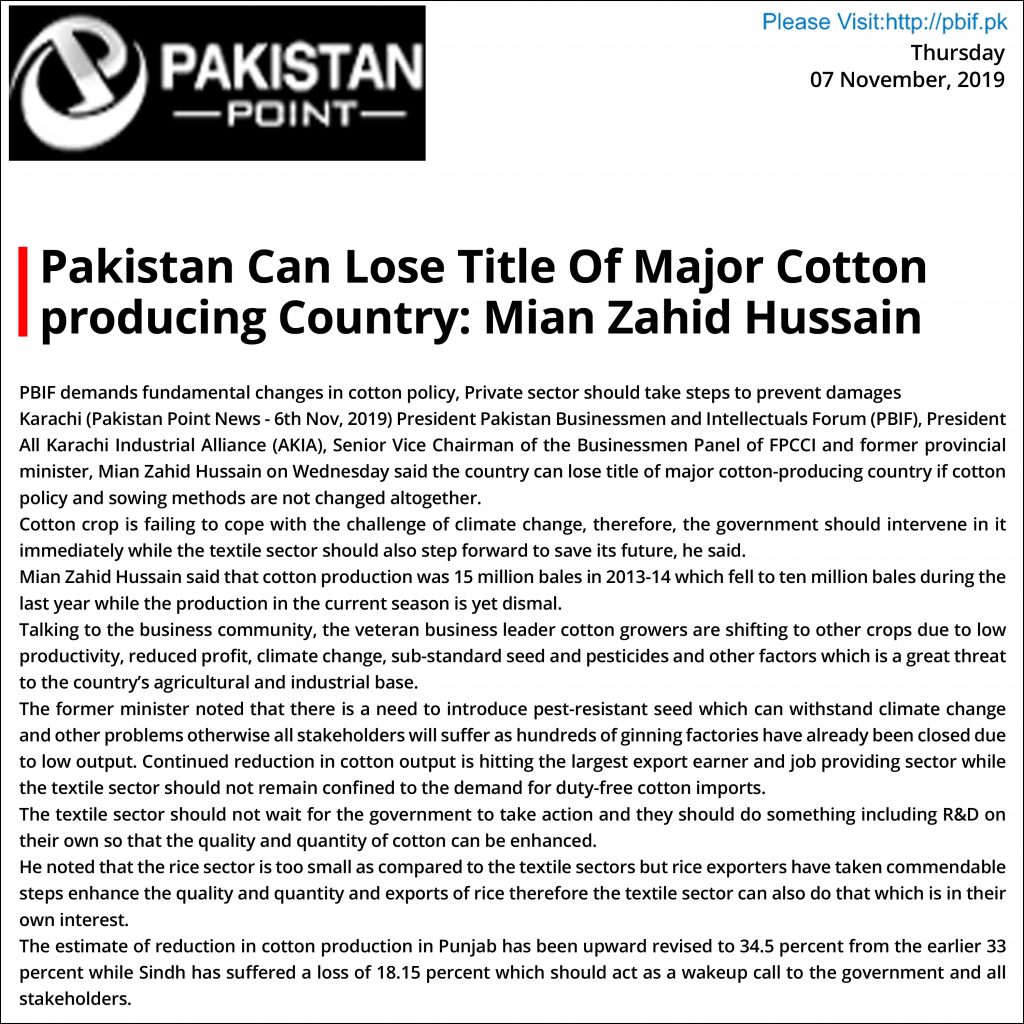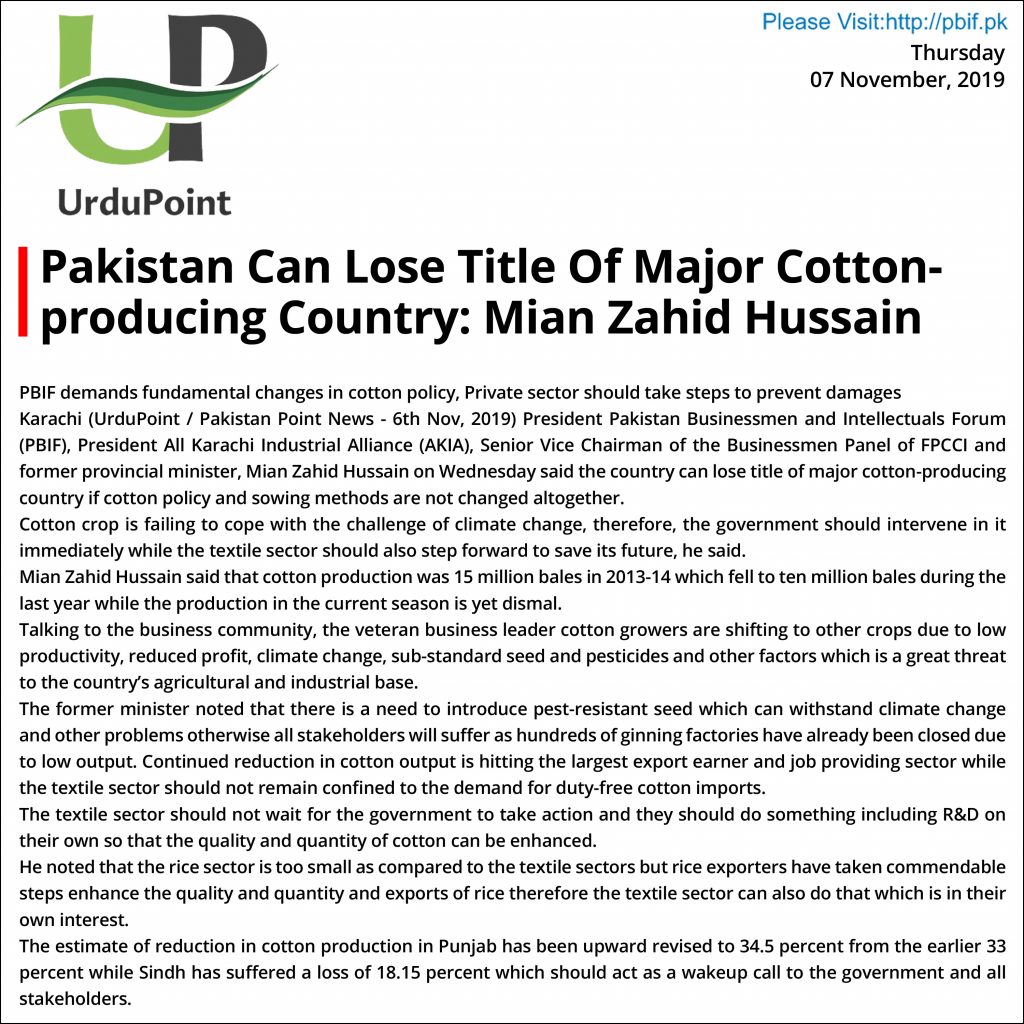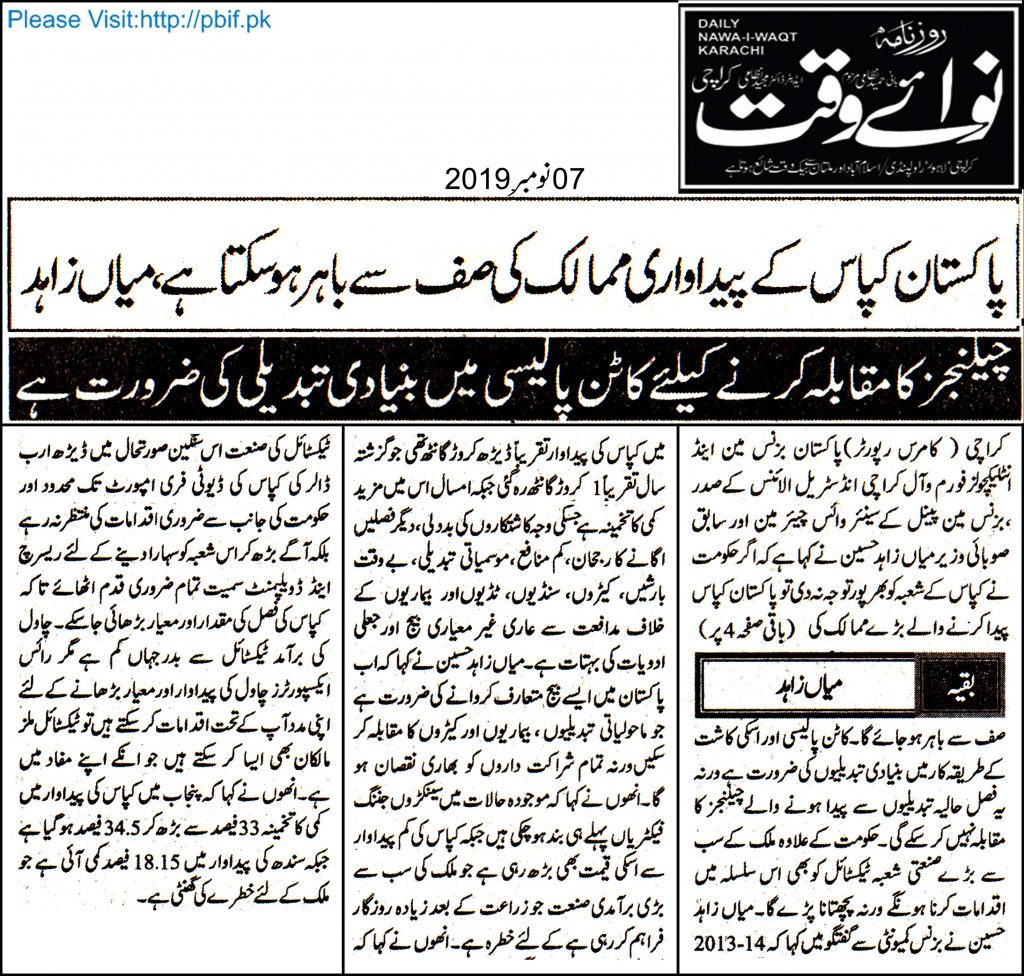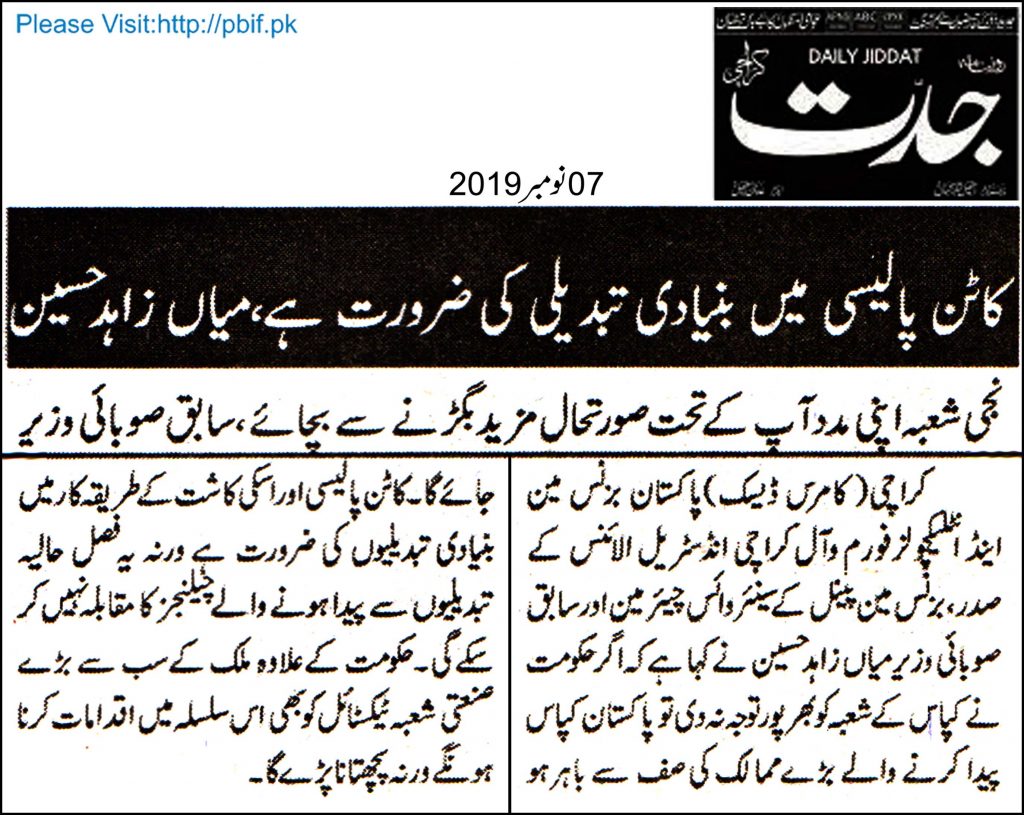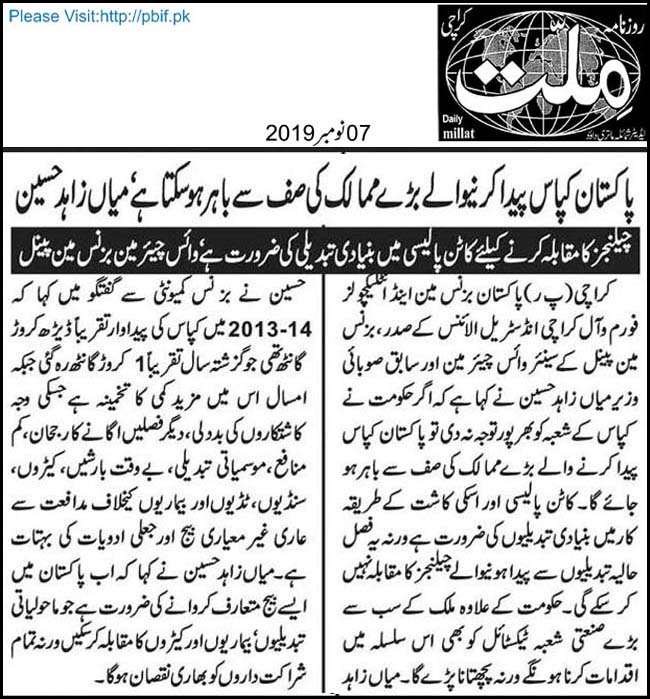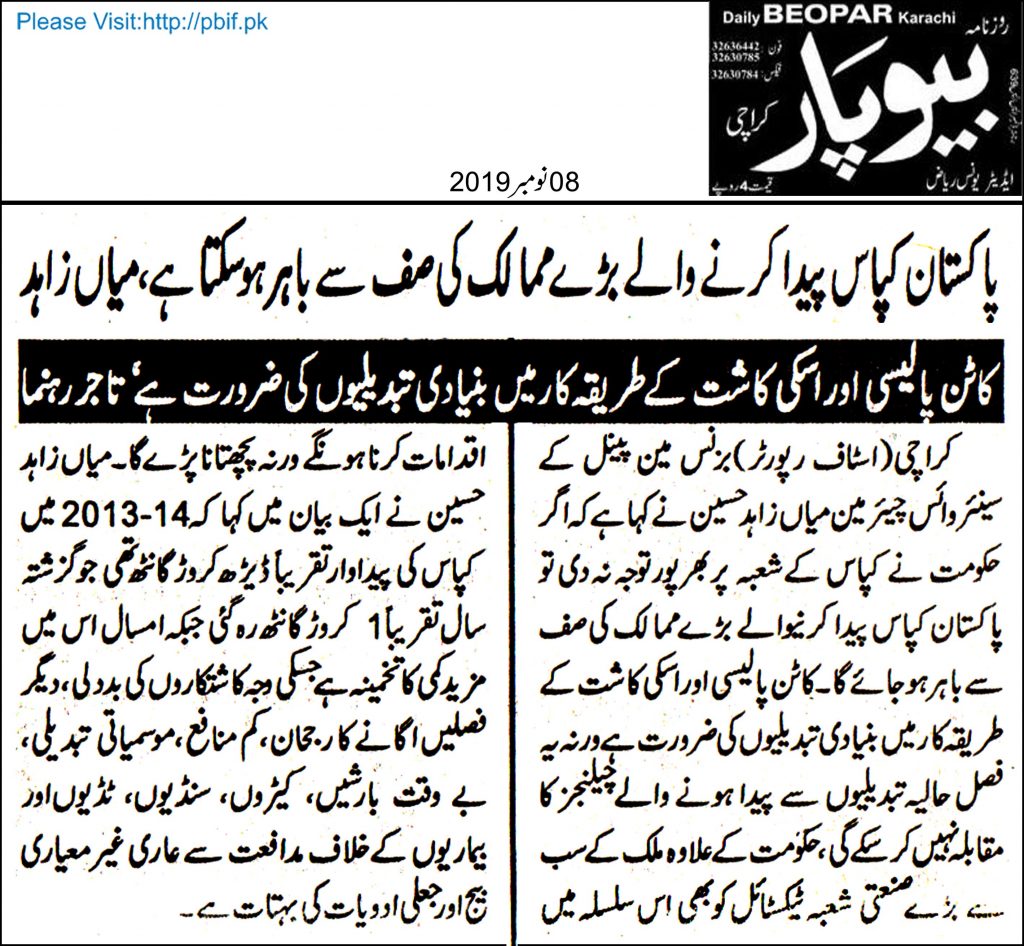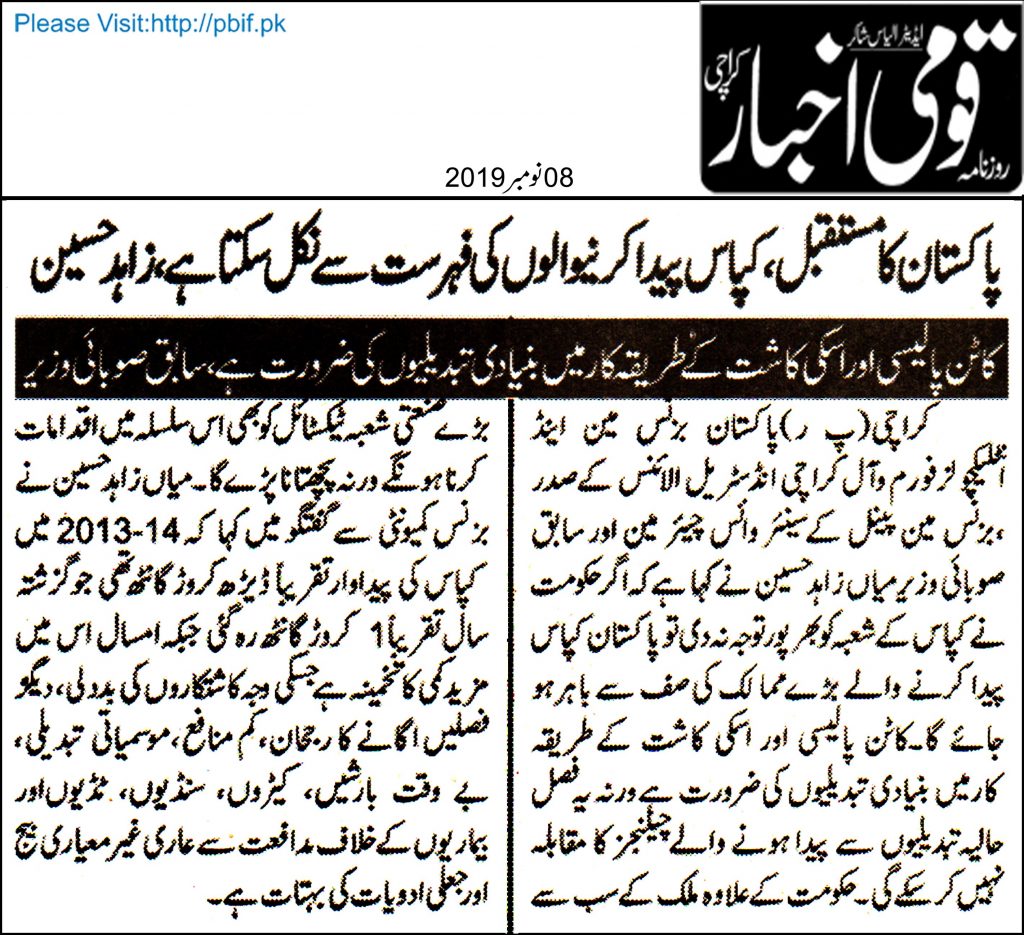(November 06, 2019)
President Pakistan Businessmen and Intellectuals Forum (PBIF), President All Karachi Industrial Alliance (AKIA), Senior Vice Chairman of the Businessmen Panel of FPCCI and former provincial minister, Mian Zahid Hussain on Wednesday said the country can lose title of major cotton-producing country if cotton policy and sowing methods are not changed altogether.
Cotton crop is failing to cope with the challenge of climate change, therefore, the government should intervene in it immediately while the textile sector should also step forward to save its future, he said.
Mian Zahid Hussain said that cotton production was 15 million bales in 2013-14 which fell to ten million bales during the last year while the production in the current season is yet dismal.
Talking to the business community, the veteran business leader cotton growers are shifting to other crops due to low productivity, reduced profit, climate change, sub-standard seed and pesticides and other factors which is a great threat to the country’s agricultural and industrial base.
The former minister noted that there is a need to introduce pest-resistant seed which can withstand climate change and other problems otherwise all stakeholders will suffer as hundreds of ginning factories have already been closed due to low output.
Continued reduction in cotton output is hitting the largest export earner and job providing sector while the textile sector should not remain confined to the demand for duty-free cotton imports.
The textile sector should not wait for the government to take action and they should do something including R&D on their own so that the quality and quantity of cotton can be enhanced.
He noted that the rice sector is too small as compared to the textile sectors but rice exporters have taken commendable steps enhance the quality and quantity and exports of rice therefore the textile sector can also do that which is in their own interest.
The estimate of reduction in cotton production in Punjab has been upward revised to 34.5 percent from the earlier 33 percent while Sindh has suffered a loss of 18.15 percent which should act as a wake up call to the government and all stakeholders.
